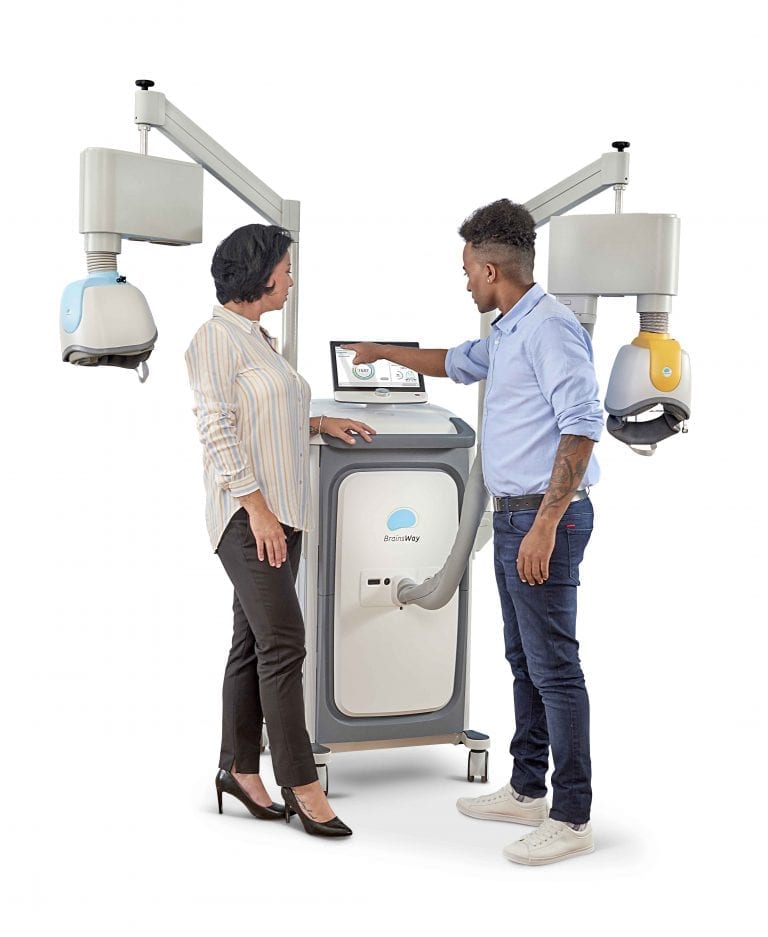
How TMS Treats Addictions
Transcranial magnetic stimulation (TMS) delivers targeted pulsed magnetic waves to gradually increase or decrease activity in areas of the brain that are not properly balanced or connected, which effect cravings, substance dependencies and abuse.
In August 2020, the FDA cleared DeepTMS (dTMS) by Brainsway Ltd. for treating nicotine dependency and smoking cessation. Special coils were developed to target the areas in the brain affected by nicotine cravings to stimulate those areas safely and efficiently at greater depths.
What you can expect from a TMS Therapy session
During the TMS procedure, the patient wears a padded helmet which activates the magnetic pulses. These repeated magnetic wave pulses reach the areas of the brain which are affected, stimulating the weakened neurotransmitters of the brain affecting the need of substance dependency.
This procedure is a safe alternative to traditional ways of treating common mental illnesses. There are no side effects by TMS as with traditional medications. Like MRI, TMS magnetic waves produce no radiation, and the TMS technician is in the room with the patient the entire time during treatment.
TMS for Addictions
During treatment of TMS, doctors and technicians can control the intensity of these pulses based on the response of the patient. All patients are awake during the TMS treatment. The procedure does not need the patient to be given any anesthesia. Patients can finish treatment and then go about their regularly scheduled day, driving home, going to work, etc. with no downtime or residual side effects.
What is the difference between rTMS and dTMS?
RepetitiveTMS (rTMS) delivers magnetic pulses to the brain by figure-8 coils. These older coils are limited in how far the magnetic waves can penetrate. DeepTMS (dTMS) a newer technology developed and patented by Brainsway Ltd, uses three-dimensional coils in a helmet design.
How well does dTMS help with smoking cessation?
Studies show that 28% of chronic smokers quit smoking for an extended period of time after being treated with TMS. During treatment cravings for cigarettes drops substantially with a 75% drop in consumption.
Does dTMS work for other addictions?
TMS has shown to work for alcohol, cocaine and other addictions. The European Union has already applied its CE approvals of TMS for substance abuse disorders (SUD) and the National Institute of Health (NIH) has also recognized the efficacy of TMS for addiction disorders.
Will TMS get approved by FDA for other substance abuse disorders (SUD)?
The FDA has thus far only approved dTMS treatment for nicotine addiction. Studies for other addictions are ongoing and FDA approval should be forthcoming. In addition to SUDs the EU has already approved TMS for many other illnesses including PTSD, OCD, Bipolar disorder, Schizophrenia, Alzheimer’s and Parkinson’s.

Get In Touch With Us
info@lifequalitytms.com
(718) 400-0867
(718) 4000-TMS
26 Court St., Ste 808
Brooklyn, NY 11201